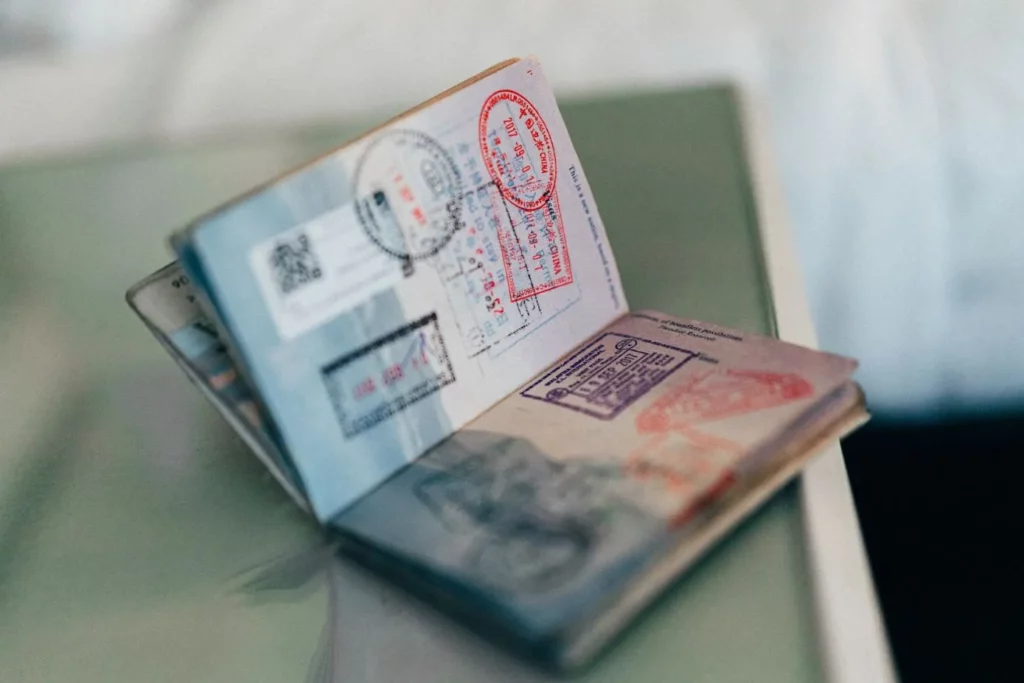The desire of traveling the globe has never been stronger among young people.
And what’s more appealing than merging travel and work into a fulfilling, growth-inducing experience that allows you to explore the world, broaden your horizons and acquire new skills along the way?
This is where a working holiday visa comes into play.
A working holiday visa is a unique type of work permit that is offered by over 40 countries worldwide to young adults, allowing them to travel and work in the host country for a specified period.
This unique opportunity allows individuals to truly immerse themselves in a new culture, lifestyle, and work environment, all while earning a living and supporting their travel expenses.
Fundamentals of Working Holiday Visas
Working Holiday Visa Overview
A working holiday visa is a permit allowing travelers to work in the country where it is issued to supplement their travel funds.
It is primarily designed for young people, often between the ages of 18-30, though the age limit varies depending on the issuing country.
Requirements and Eligibility
Eligibility for a working holiday visa depends on various factors, including nationality, age, financial resources, and sometimes the intent or purpose of the visit.
The applicant should hold a valid passport of a country that has a reciprocal agreement with the destination country.
Duration and Age Limits
The duration of a working holiday visa typically ranges from 12 to 24 months, depending on the issuing country. However, the age limit for eligibility generally falls between 18 and 30 or 35.
Countries Offering Working Holiday Visas
Asia-Pacific Region

In the Asia-Pacific region, several countries provide working holiday visas :
Europe
Several European countries, offer working holiday visas :
- France
- United Kingdom
- Germany
- Ireland
- Italy
- Austria
- Belgium
- Czech Republic
- Denmark
- Estonia
- Finland
- Latvia
- Lithuania
- Malta
- The Netherlands
- Norway
- Poland
- Slovakia
- Slovenia
- Spain
- Sweden
- Switzerland
North America

Canada is the primary North American country providing working holiday visas, predominantly to people from countries part of the International Experience Canada (IEC) program.
South America
In South America, few countries provide working holiday visas :
- Argentina
- Chile
- Uruguay
But these are typically less frequent than in other regions.
Africa and Others
A few countries in Africa and the Middle East also provide working holiday visas:
- South Africa
- Israel
- Turkey
- Cyprus
Application and Documentation
Applying for a Working Holiday Visa
To begin the process of obtaining a working holiday visa, the first step is to determine whether your desired destination country extends this visa option to individuals of your nationality.
Notably, countries like Australia, New Zealand, South Korea, Ireland, and Singapore presently offer working holiday visas for Americans.
The application can usually be completed online, although some cases, such as the subclass 462 visa for Australia, may necessitate additional documentation or proof of sufficient funds.
It is imperative to ensure that you satisfy the eligibility requirements, typically encompassing factors like age criteria (usually between 18 to 30 years old), a valid passport, and adequate funds to cover your travel expenses.
Furthermore, you might be required to furnish evidence of health insurance, a roundtrip ticket, or a designated sum of money to cater to living expenses.

Embassy and Work Permit Information
Each country has its own specific rules and requirements for granting work permits.
To obtain accurate guidance on the specific working holiday visa application process, make sure to contact the nearest embassy or consulate of your target country.
They will furnish you with updated information regarding any required work permits, necessary documentation, and processing times. Following their instructions closely is crucial to avoid delays or potential rejection of your application.
When applying for a work permit, you will typically need to submit your passport, relevant visa documentation, and possibly a job offer letter or contract.
Keep in mind that processing times and requirements can vary between countries, so staying informed about your particular situation is essential.
Passport and Study Regulations
Ensure that your passport remains valid for the entire duration of your stay, and ideally, for an additional six months beyond your intended departure date.
Some countries may deny entry if your passport’s expiration date is too close to your travel date, so it’s better to renew your passport if necessary.
Personally, I always keep mine valid for at least 6+ months before traveling, especially if I plan to live abroad for an extended period.
For those intending to study during their working holiday stay, it is essential to check the study regulations of the target country.
Some working holiday visas may impose restrictions on the duration of study, the type of courses allowed, or the total number of hours per week.
The application process for a working holiday visa requires careful consideration of various guidelines and regulations.
Prepare your documentation, stay informed, and embrace the unique opportunity to work and travel in another country.
Job Opportunities and Sectors

Teaching and Tourism
Teaching English or working in the tourism industry are popular options for those on a working holiday visa.
To teach English, you may need to have a TEFL or similar certification.
Cultural Exchange
Working in cultural exchange roles, like au pairing or community work, is another common avenue for travelers on a working holiday visa.
Other Fields
There are also opportunities in other fields like agriculture, hospitality, and retail, among others, depending on the country and season.
Financial and Legal Considerations
Sufficient Funds and Return Ticket Requirements
In the process of securing a working holiday visa, actively ensuring you possess enough financial means for self-sufficiency throughout your visit is crucial.
Every country sets its own criteria, so proactively familiarizing yourself with the required monetary amount before submitting your application is important.
Additionally, you should bear in mind that certain countries may stipulate that you provide a return ticket or evidence of further travel. This serves as a guarantee that you are capable of exiting the country upon the expiration of your visa.

Residence Permit and Employment Laws
A working holiday visa indeed bestows upon you the privilege to seek employment in a foreign land, however, you might still need to proceed with a residence permit application.
Transitioning from one country’s labor laws to another can be a challenge, so actively acquainting yourself with the employment regulations and your entitlements as a transient employee is vital.
Pay meticulous attention to intricacies such as your responsibilities towards income tax and your employer’s required contributions to compulsory social programs.
Age Restriction and Travel Funds
Working holiday visas are predominantly aimed at the young adult demographic. Consequently, most countries impose an age limitation for applicants, which commonly falls between 18 and either 30 or 35 years of age.
Bear in mind that you’ll need to secure travel funds to cater for your airfare, accommodation, and day-to-day expenses.
Proactively accumulating savings before setting off on your journey is vital, ensuring you won’t face financial hardships during your overseas experience.
Final Thoughts
Working holidays are a fantastic opportunity to explore the world while gaining valuable experience and making lifelong memories. However, they also involve serious considerations like finances, legal requirements, and the commitment to living abroad. Careful preparation can ensure your working holiday is a life-changing experience.
FAQ
The process typically involves completing an application form, paying a fee, and providing supporting documents. Check with the relevant embassy or consulate for specific details.
Popular jobs include teaching, tourism-related roles, cultural exchange roles, and seasonal work like agriculture.
Most countries set the age limit between 18 and 30 or 35. Some countries may be more flexible. Check with the embassy of the destination country for precise information.
Typically, a working holiday visa allows you to stay for one to two years. However, the duration can vary depending on the country.
This depends on the country. Some countries, like Australia, allow multiple applications, while others do not.
Some countries allow extensions, usually by completing certain types of work. Always check the regulations of your chosen country.
Most countries require health insurance coverage for the duration of your stay.
This can vary. Some countries require a job offer as part of the visa application, while others allow you to find work upon arrival.







